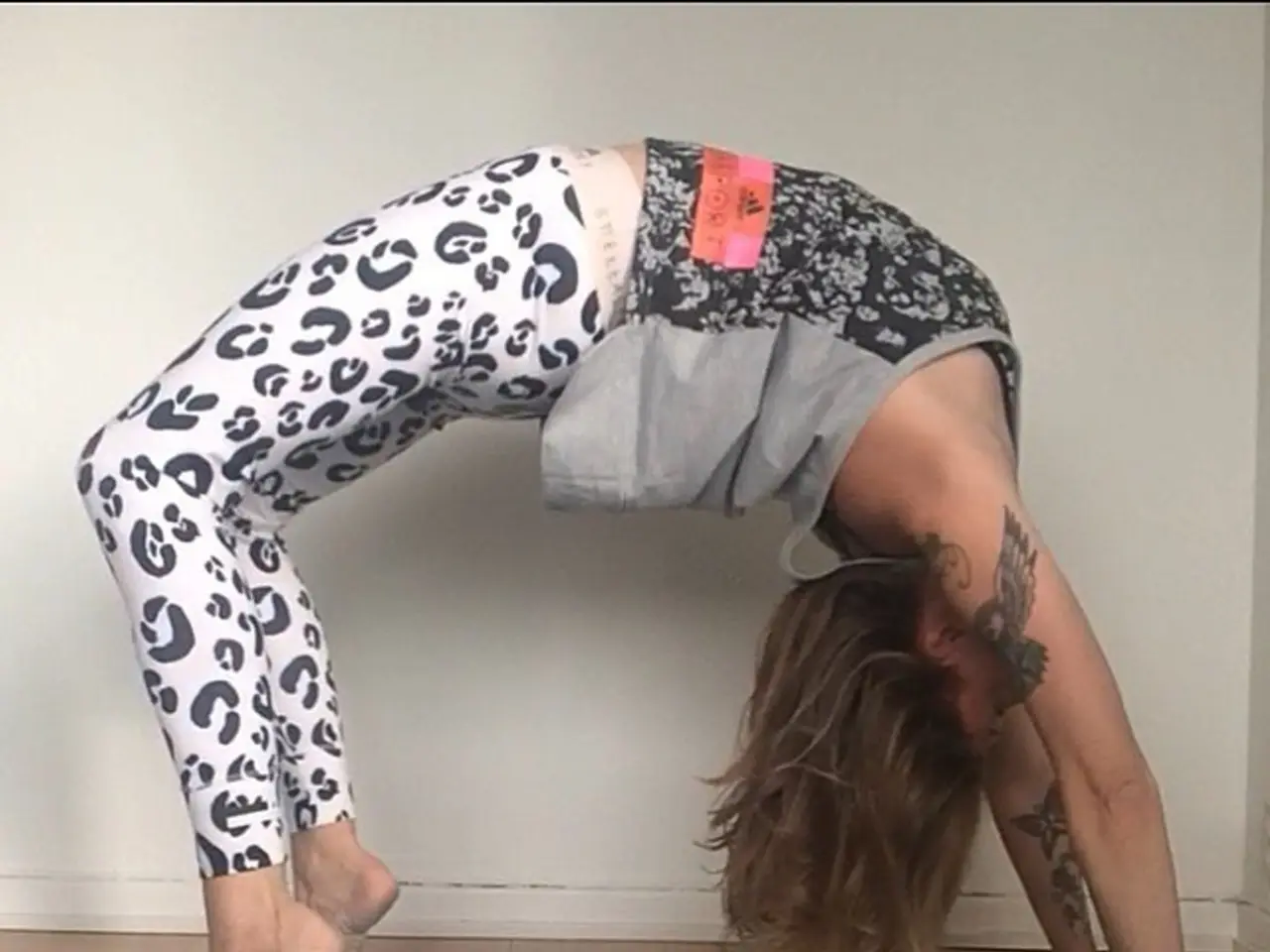Is it permissible for yoga to be practiced within Islamic guidelines?
In the ongoing debate about the permissibility of yoga for Muslims, some Islamic scholars view the practice as forbidden, particularly when it includes spiritual elements that conflict with Islamic monotheism and involve associating partners with Allah. This is due to yoga's origins in Hindu philosophy, which aims for union with a universal spirit, underpinning the view that yoga involves shirk [1][3][5].
However, many Muslim yoga teachers and participants have found ways to make yoga inclusive and permissible by adapting it to align with Islamic principles. For instance, Fatima Dambam, a yoga instructor, removed prayer, mantras, and anything else conflicting with Islam from her classes, creating a space that respects Muslim values and modesty [1].
This secular, fitness-based approach to yoga has gained popularity among Muslims who are interested in physical health and social connection without compromising their faith. Participants have responded positively to such inclusive classes that separate yoga's exercise benefits from its spiritual origins [1].
One such teacher is Adelah Bilal, a second-generation Muslim yoga instructor who teaches from a non-denominational perspective, specifically focusing her teaching towards Muslim women. Bilal began her yoga journey after a knee injury in 2013 and completed her teacher training in 2019. During her training period, she experienced tension between yoga and her faith, but she later realised she could separate the spiritual elements from the exercise itself [2].
Dambam's journey into wellness began during the Covid-19 pandemic, when she took up running and joined the Muslim Runners community. In May 2021, she launched Zenco, a Muslim-friendly wellness community for women, offering yoga and mat pilates, with plans to offer additional activities such as paddle sessions and hikes [4].
Dambam's creation of Zenco was motivated by a desire to create a more inclusive space for Black Muslim women and encourage more Muslim girls to participate in sports. Her decision to offer yoga at Zenco provoked a strong reaction, with some commenting that it is "haram" (forbidden in Islam). However, the response from attendees at Zenco has been overwhelmingly positive, with participants appreciating the enclosed space to take off their hijabs and the social aspect of being with other Muslim girls [4].
Bilal teaches yoga without chanting or mantras, avoids mudras, and gives students the option to skip anything that feels uncomfortable. Bilal's mother, also a yoga instructor, has been teaching for more than 20 years, focusing on posture and movement [2].
Despite the growing popularity of secular yoga among Muslim communities, Islamic opinions on yoga remain divided, with some scholars considering it haram. The question of whether yoga is permissible in Islam brings together centuries-old traditions, interpretations of faith, and an increased popularity of wellness practices among Muslims [6].
Yoga, rooted in ancient Indian traditions, has evolved globally into a multibillion-dollar industry, but its ties to Hindu and Buddhist philosophies continue to cause debate in Muslim communities. As more Muslim teachers and communities adapt yoga to align with Islamic principles, the debate is likely to continue, but the practice of secular, fitness-based yoga is gaining acceptance among many Muslims as a means of improving physical and mental wellbeing.
- Fatima Dambam, a Muslim yoga instructor, removed prayer, mantras, and other religious elements from her classes to create a space that respects Muslim values, including health-and-wellness through secular, fitness-based yoga.
- Adelah Bilal, a second-generation Muslim yoga instructor, teaches yoga to Muslim women, focusing on physical exercise rather than spiritual elements, separating the two aspects to make the practice more inclusive and permissible within her faith.




